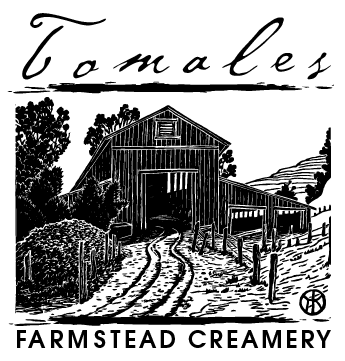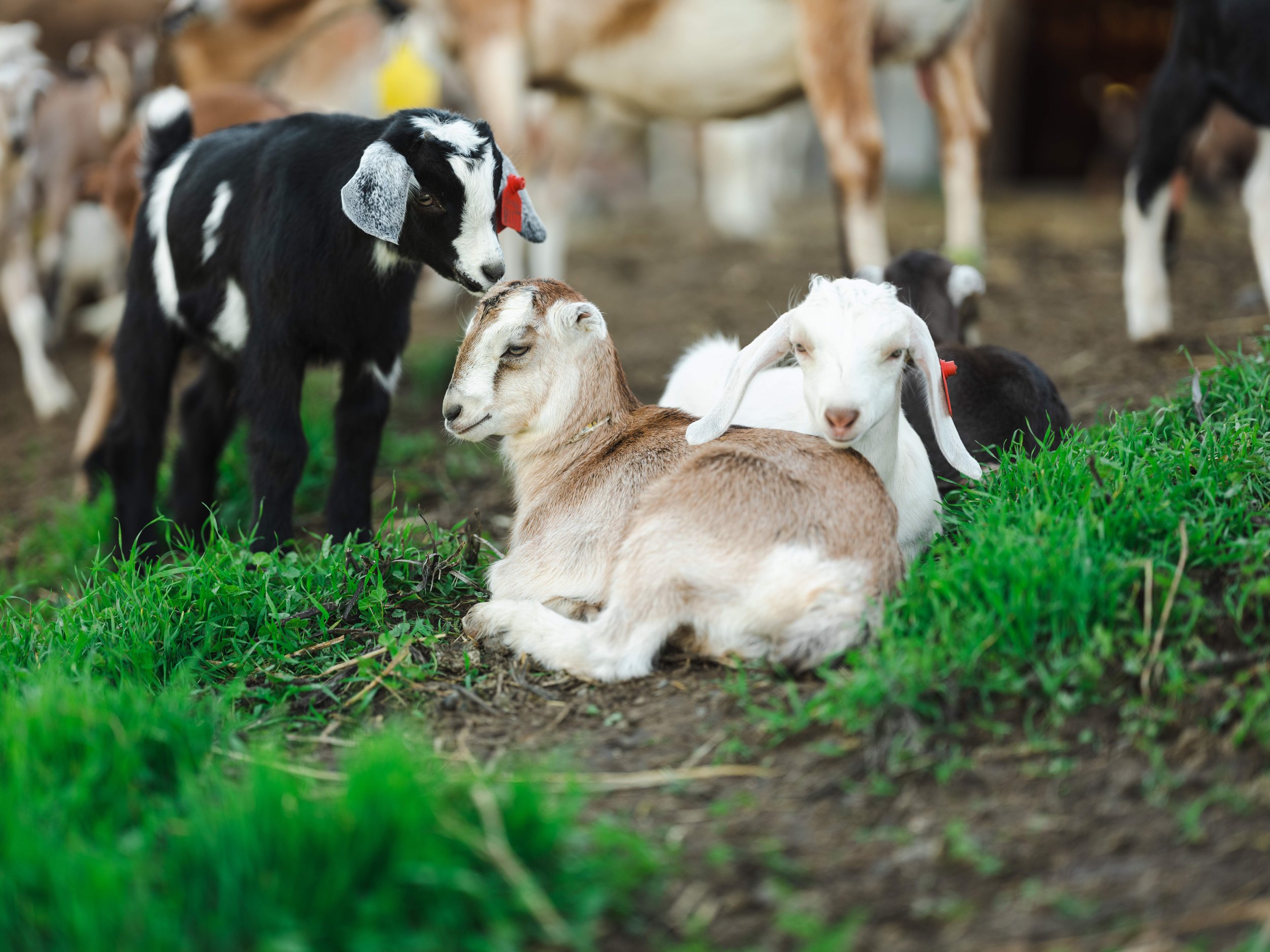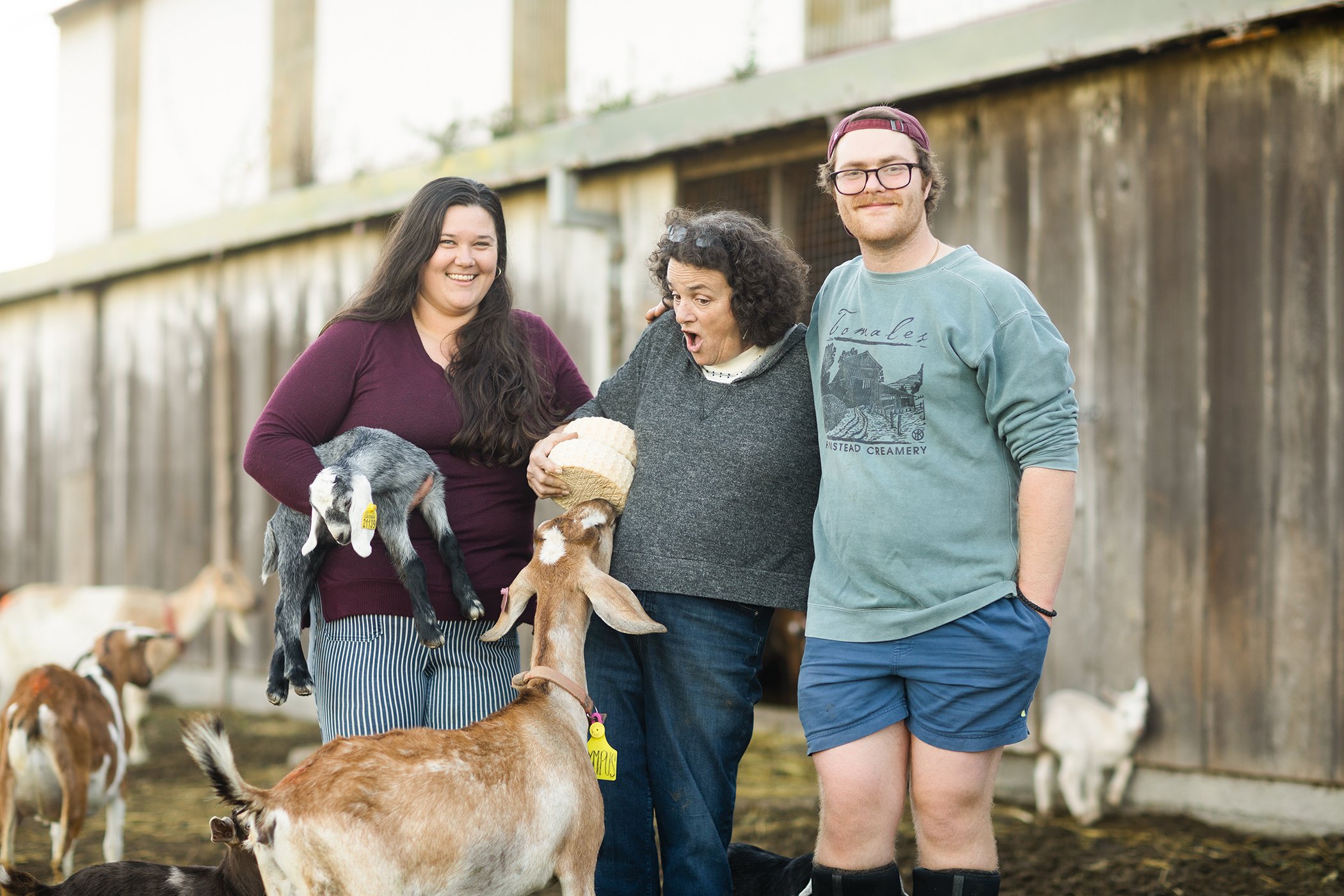Toluma Farms
Our farm is a 160-acre goat and sheep dairy and educational farm in Marin County, just a few miles from the Pacific Coast, on the ancestral homeland of the Coast Miwoks.
Tamara Hicks and David Jablons, alongside their daughters, Josy and Emmy, began stewarding the land in 2003. With backgrounds in health care, they knew firsthand the positive impact that a healthy ecosystem and good, whole foods can have on one's mental and physical health.
Without previous farming experience, Tamara and David set out to revitalize what was then a defunct cow dairy, restoring its battered barns and breathing new life into neglected soil. In 2007, Toluma Farms opened its doors as a goat and sheep dairy. Soon after, Tomales Farmstead Creamery was born.
In 2010, we protected our agriculture heritage with the oldest land trust in the country, the Marin Agricultural Land Trust (MALT). Because of MALT’s pioneering work, more than 55,000 acres (more than 90 farms) throughout West Marin are protected farmland forever.
150 acres of Toluma Farms are certified organic by Marin Organic Certified Agriculture. The lower section is home to a historic barn, milking parlor, creamery, and apple orchard. Up the very-nearly-vertical farm road are windswept pastures, where 80 sheep and 200 goats are rotated regularly to graze and roam.
Our Roots
Marin County was named after Chief Marin (whose true name was Huicmuse), an 18th-century leader of the Licatiut, a branch of the Coast Miwok. Chief Marin lived toward the end of the era of Spanish rule in Alta California, a period of severe decline for the Coast Miwok and other Indigenious tribes, whose populations were decimated by over a century of introduced disease, conflict, abuse and enslavement by European colonists. The Coast Miwok were hunters and gatherers who tended the wild and over time inhabited some 600 village sites in the region between Sonoma’s Bodega region and Southern Marin. In 2022, we are proudly embarking upon a collaborative planting project with the Federated Indians of Graton Rancheria (FIGR), MRCD, NRCS and Point Blue.
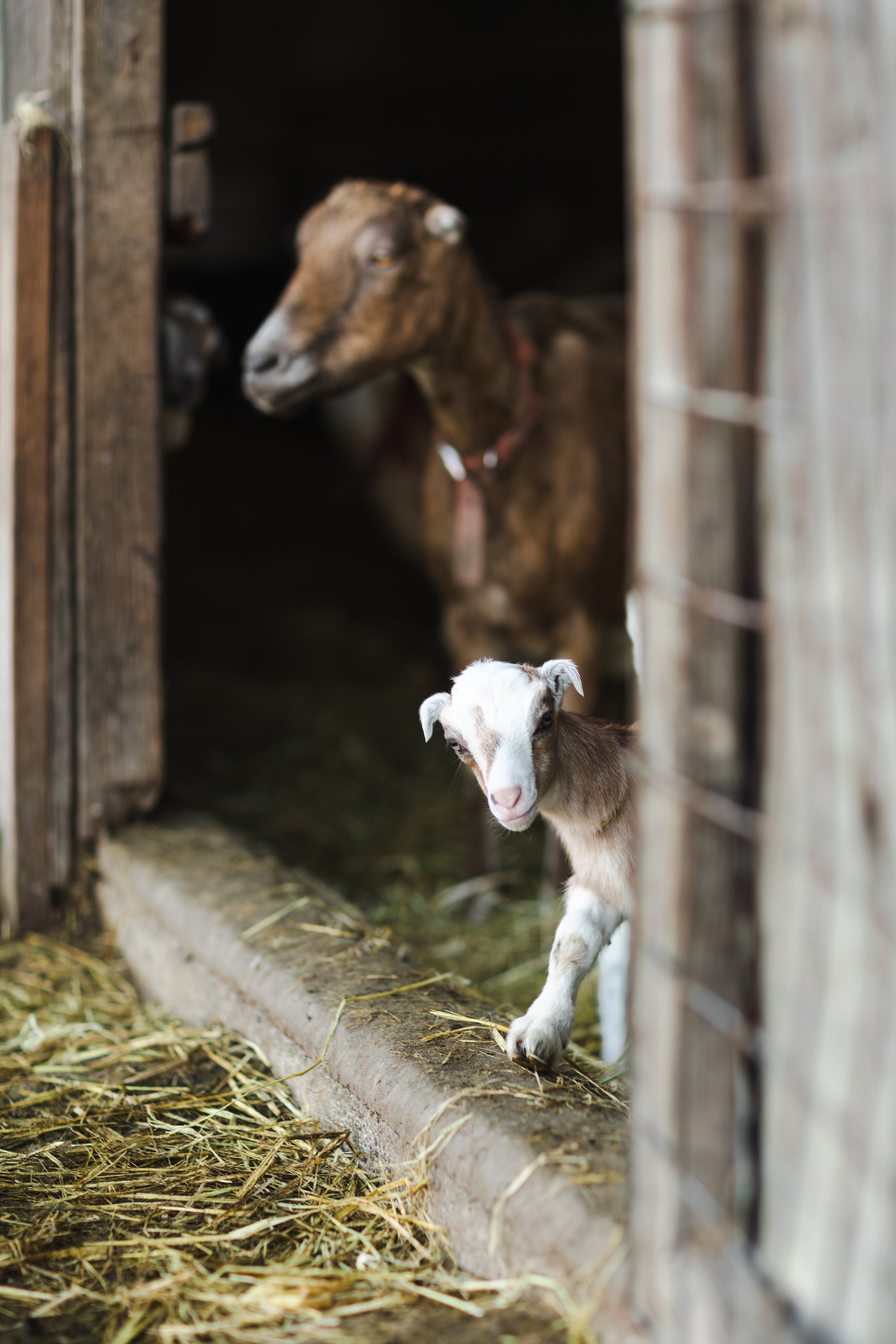



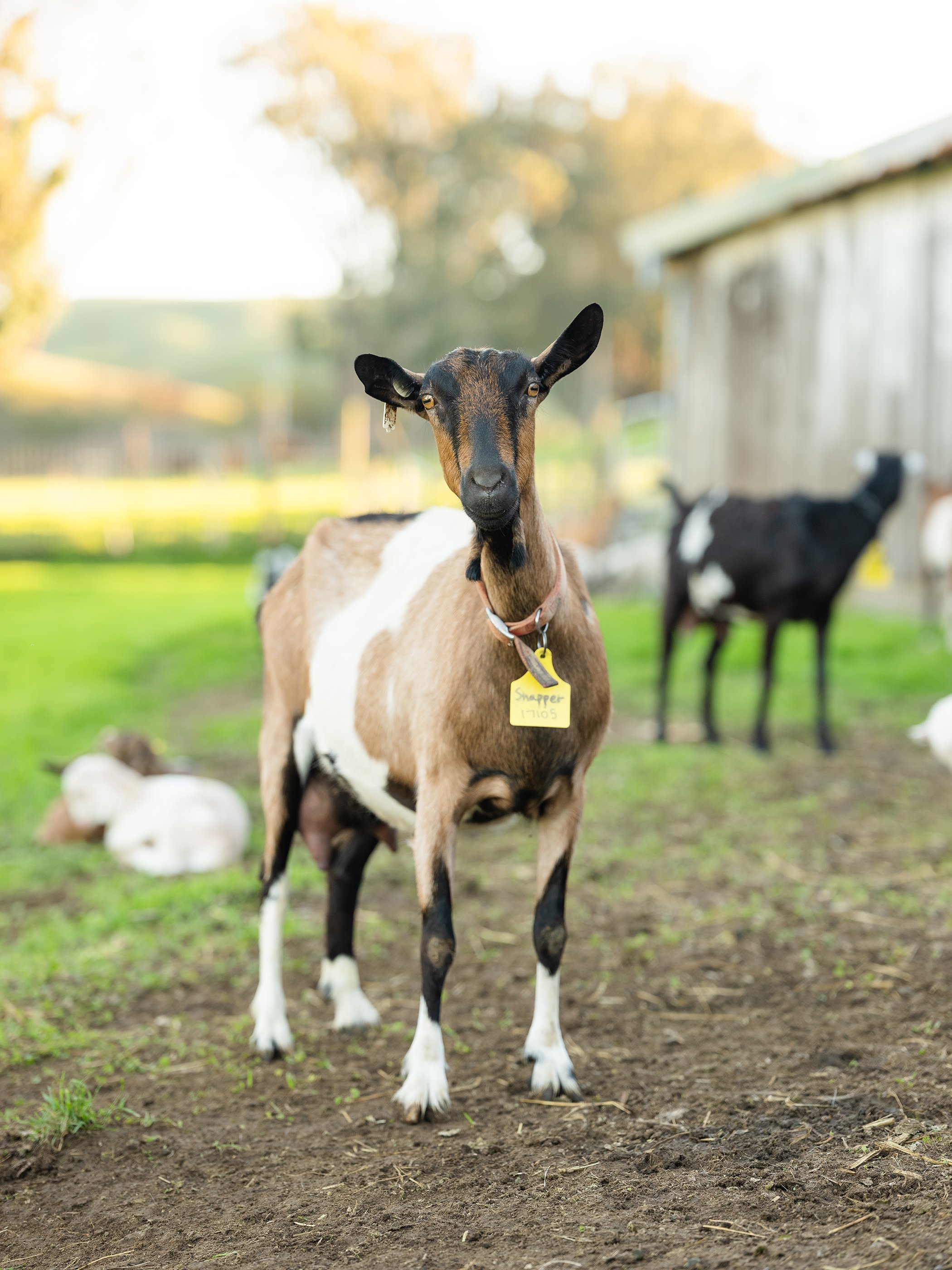
Sustainable Agriculture
Toluma Farms has received incredible support from many organizations (including MALT, NRCS, STRAW, Marin Carbon Project, MRCD, Point Blue, and UC Coop Ext.) to carry out important stewardship projects. Together, we’ve restored creeks and drainages that bisect the farm, provided wildlife habitats, helped the land conserve water, and improved animal grazing to stimulate plant growth and increase carbon in the soil.
Producing incredible cheese is only one of our many passions. We also aim to make the farm as productive as possible, improve the health of the land, and sequester atmospheric carbon through sustainable management practices.
In 2015, Toluma Farms was selected by the Marin Carbon Project for the development of a Carbon Farm Plan. In 2017, the farm received a USDA Healthy Soil three-year grant to plant a windbreak of 450 trees and bushes, as well as apply compost to our pastures. Made up of a variety of local shrubs and trees—like Monterey cypress, California coffeeberry, and coast silk tassel—the two windbreaks stretch a quarter-mile in length. When fully grown, they will look very different from the conventional windbreaks of cypress and eucalyptus trees found in West Marin. The diverse native trees and shrubs, with their varying mature heights, will excel at blocking wind, all while providing flowers for pollinators and habitats for wildlife.
Meet the team.
The success of our farm, creamery and shops are all built on one thing: teamwork. We are intensely focused on providing training and careers to our country’s next generation of farm and food makers.
